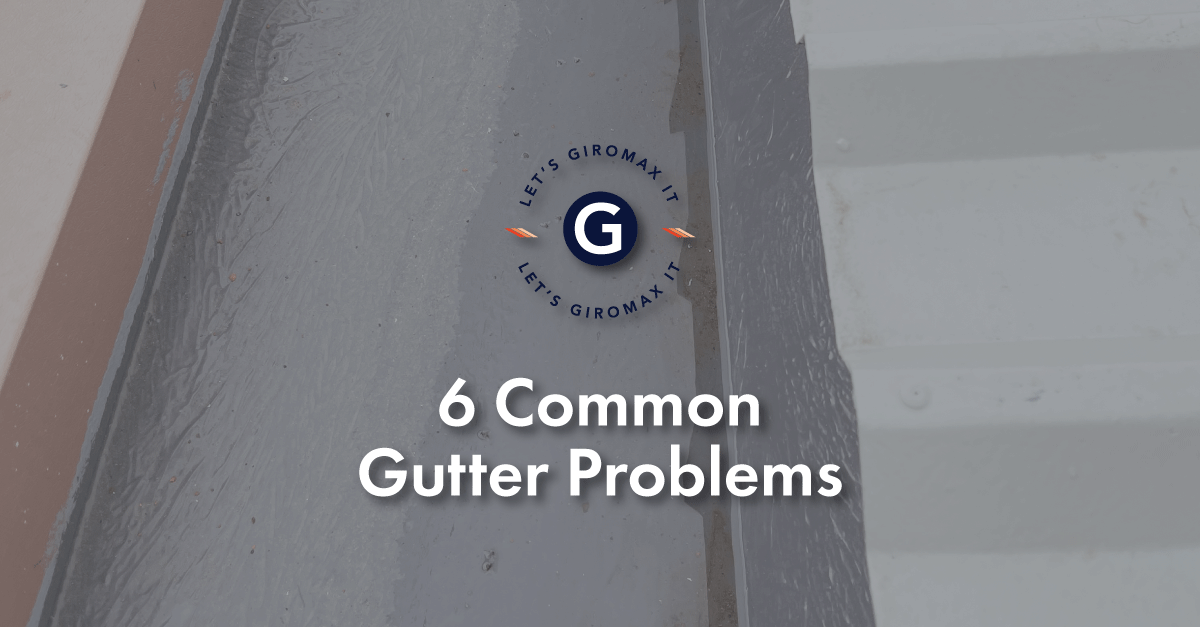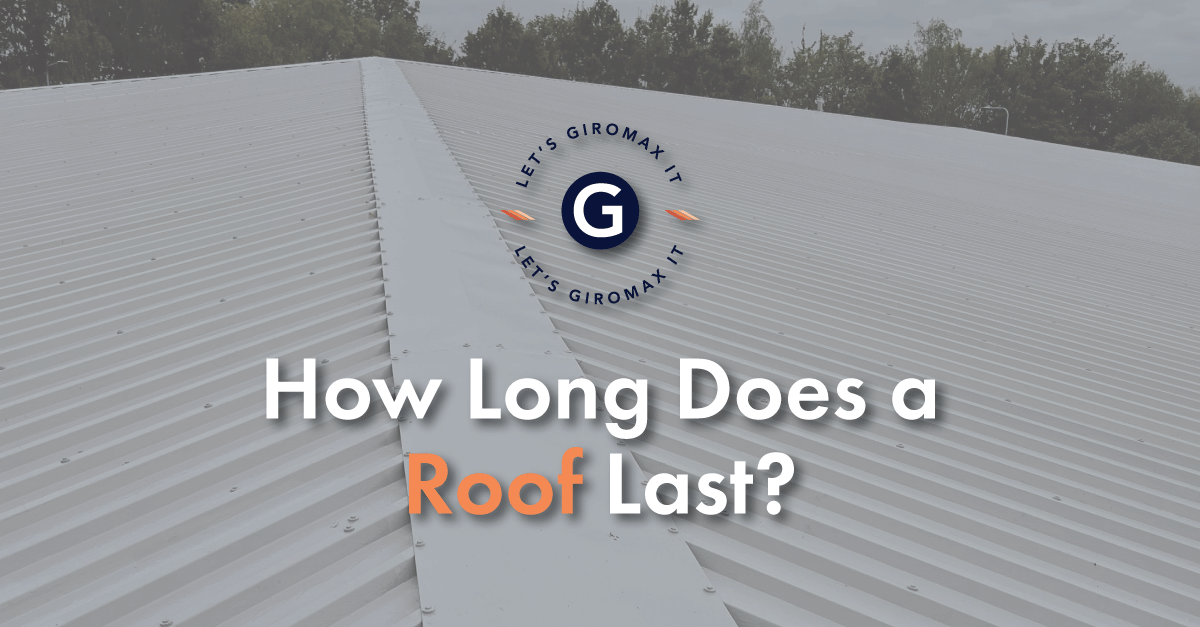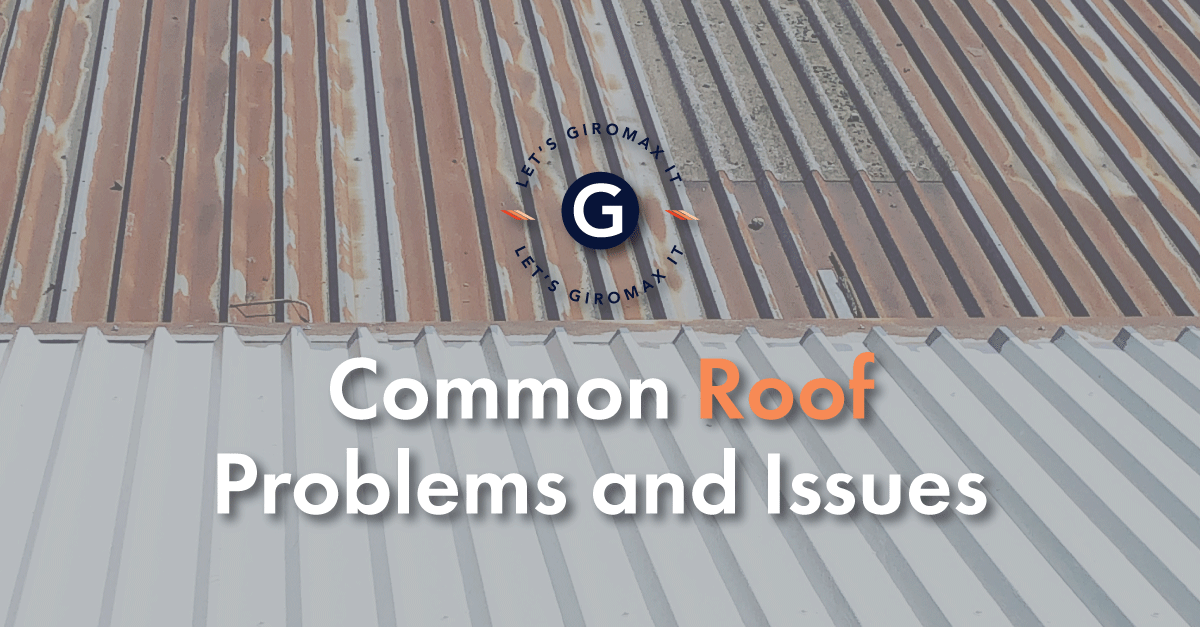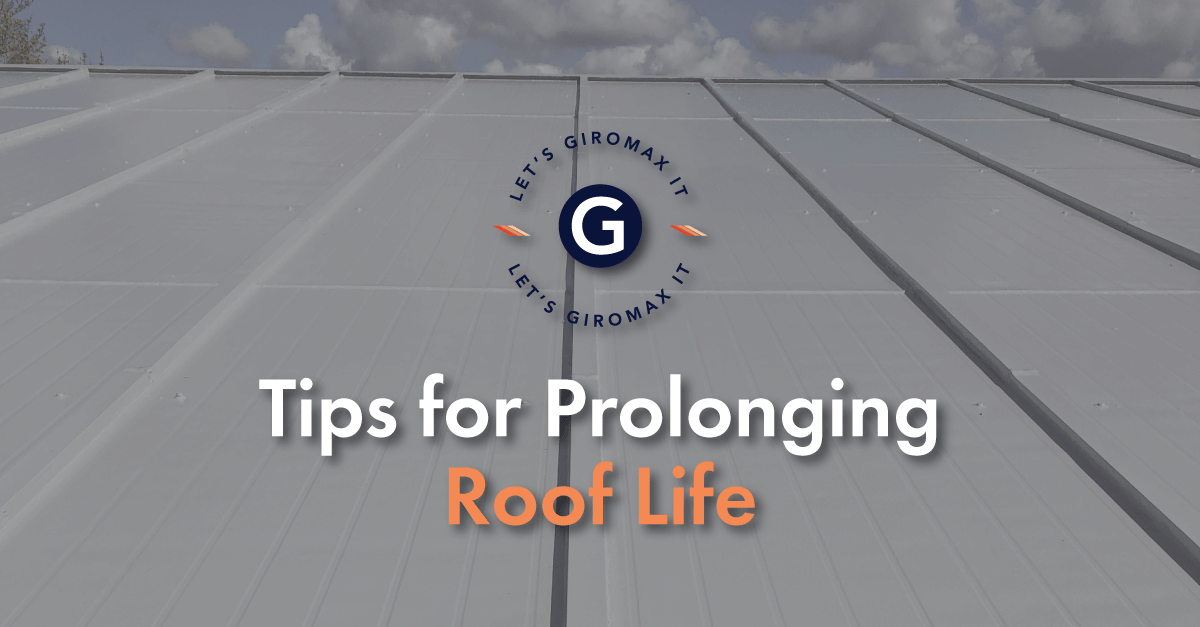6 Common Gutter Problems and Solutions
From sagging to clogged gutters, guttering is prone to issues including leaks and holes. We look at common gutter problems and solutions…
There are several common gutter problems such as sagging, clogging, leaks and holes that can be costly if they are not swiftly dealt with. By using the right approach to treat and fix guttering systems, this can also avoid expensive replacements. In this article, we look at various issues that can affect guttering systems, along with some suitable solutions.
Sagging Gutters
Sagging gutters can be caused by various factors such as fallen debris that has either blocked the gutter or downpipe. Water can then start to build up, which causes the gutter to sag. When you have water pooling for a considerable amount of time, this puts the gutter system and joints under great pressure. Eventually, this could lead to the gutter breaking entirely, resulting in a costly replacement.
By regularly carrying out maintenance, you can check your gutters and keep them clear of debris. Never leave a sagging gutter as this could potentially lead to breakage and building damage.
Clogged Gutters
Clogged gutters occur when debris starts to accumulate, such as old birds’ nests, twigs, branches and moss. As a result, stagnant water can start to pool, leading to the growth of grasses and weeds. Any type of matter adds extra weight to both the gutter and brackets, which could weaken the integrity of the guttering system. Eventually, the guttering may start to sag or completely collapse, which could damage the surrounding roof and building.
By carrying out a full clean of your gutters on a regular basis, you can keep these areas free from debris and blockages.
Leaks and Holes
Damaged guttering can be caused by fallen branches, loose roof sheets or tiles, as well as items thrown across the roof from a storm. Over time, such damage can cause leaks and holes to appear, allowing water to seep through to adjacent roof areas and walls. It’s important to repair or replace any damaged guttering as soon as it has been spotted.
If the gutter has hairline cracks, you may be able to apply waterproof tape or Giromax® Sealant to seal the gap. Never leave a hole as this will compromise the integrity of the guttering system.
Incorrectly Pitched Gutters
For gutters to perform correctly, they require a slight slope. This enables rainwater to be guided in the right direction and allows the guttering to do its job. If the gutters are pitched too steep, water could flow too quickly and flood the drainpipe or drains. If the guttering is too level, the water will simply pool instead of being directed down the drainpipe.
To avoid rain gutter problems, always check the position of downpipes. Many roofing specialists suggest pitching a downward slope of around 1:350 (1 cm to every 3.5 metres in length).
Incorrect Downpipe Position
When it comes to downpipes, if these are positioned incorrectly, this can cause gutters to overflow. Over time, excessive water falling into areas not designed for this purpose can result in erosion and foundation problems. Also, ice and debris are more likely to build up within incorrectly positioned downpipes. This can create a dam effect, restricting water flow.
Downpipes need to be placed at strategic points to carry water away from the building. The exact positioning of each downpipe will depend on the roof shape. It is usually advisable to install downpipes close to any valley gutters to channel water from the roof surface to the guttering system.
Corroded Gutters
When a gutter has become blocked, slow drainage can accelerate oxidisation, resulting in corrosion. Corroded gutters can become a costly issue if rust patches are not addressed and treated accordingly. Corrosion can also occur when the galvanised zinc coating wears away or is scratched and rusty areas can then arise. These rust patches can grow if exposed areas of the metal are left untreated.
Giromax® Guttercoat can be used to repair a range of gutter systems. Highly flexible and durable, this elastomeric gutter coating can withstand exposure to UV rays and pooling water. It can also be applied during damp conditions because the formula is moisture tolerant. As an anti-corrosion treatment, Giromax® Guttercoat fully encapsulates the guttering. Use Giromax® Sealant to seal any defective joints.
Conclusion
A proactive approach to common gutter problems will result in a more cost-effective solution, saving building owners time and money. When bad gutter problems are caught early, they can usually be effectively treated. By using Giromax® Guttercoat to maintain, repair and protect a guttering system, you can prolong its lifespan, aesthetic finish and functionality.
As a market-leading treatment for guttering systems, Giromax® Guttercoat has an advanced formula and is guaranteed for up to 15 years. It can be used on gutters made from galvanised steel, cast iron, aluminium, copper, lead and asbestos cement.
For more information about gutter treatments and protection, call 01455 558969 or email: sales.orders@giromax.co.uk
Get updates from us
Sign up to our newsletter to receive all the latest news and insights from Giromax Technology.
Subscribe to NewsletterRelated articles
How Long Does a Roof Last?
The average lifespan of different roof types can vary. In our guide, we look at how long a roof typically...
5 Common Roof Problems and Issues
Resolve common roof problems, from rust and corrosion, leaks and water damage, UV damage and thermal expansion to biological growth.
Pitched Roof Maintenance: Tips for Prolonging Roof Life
Regular pitched roof maintenance cuts repair costs. We share key maintenance tasks, seasonal inspection tips and preventative treatments.









